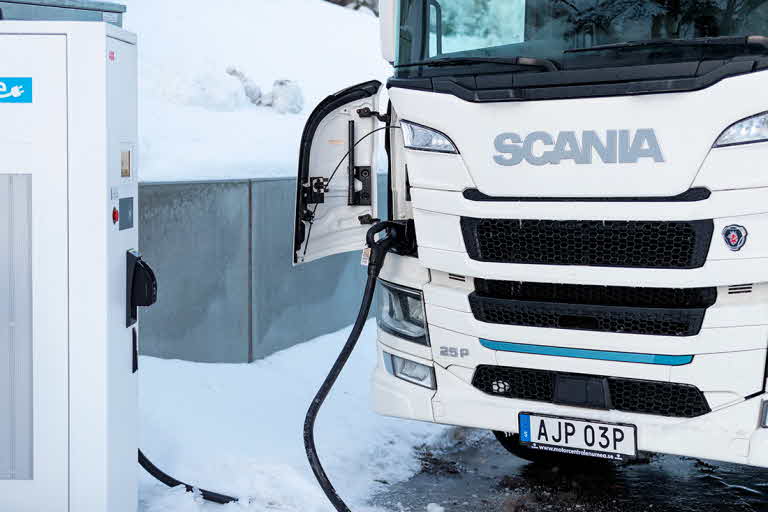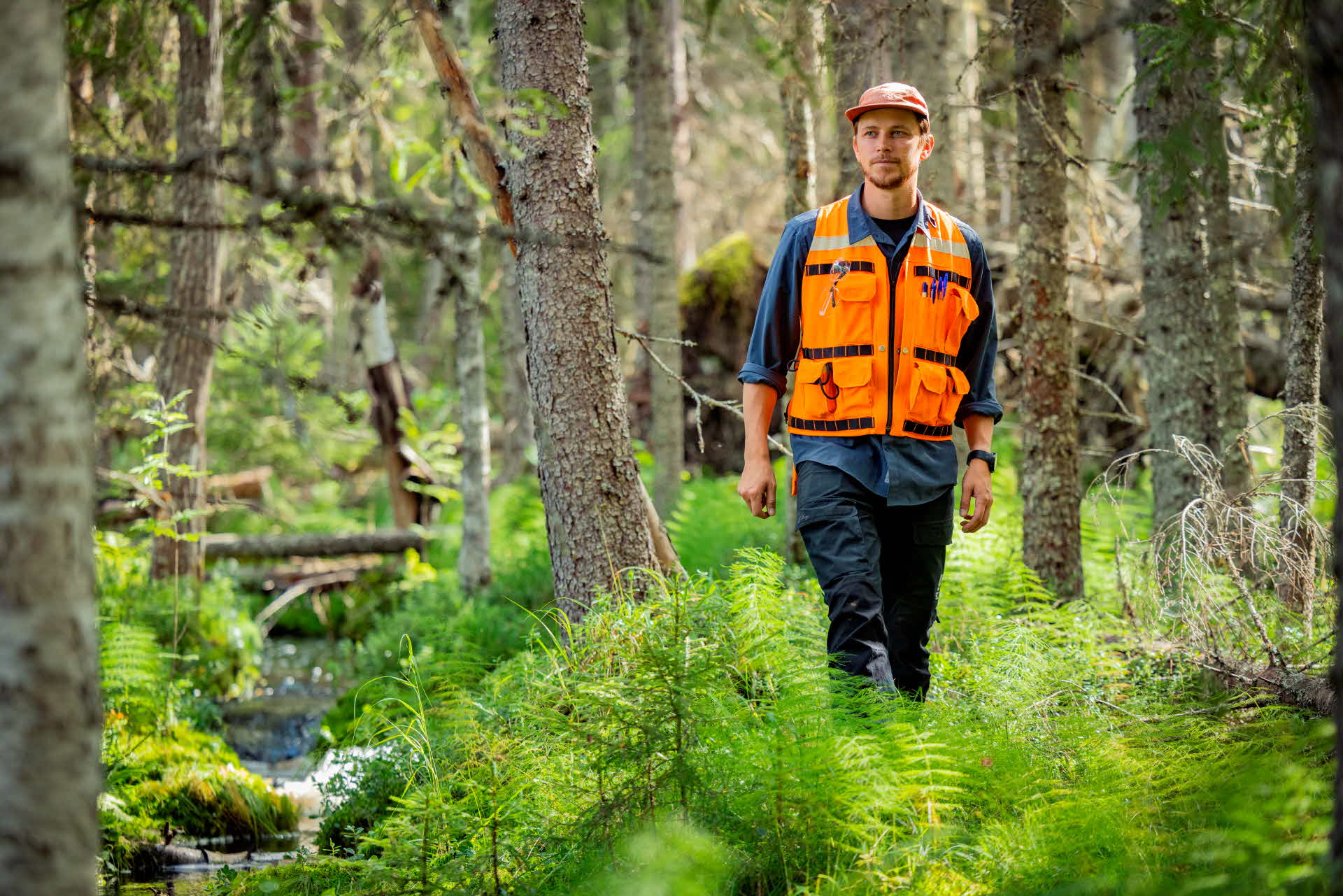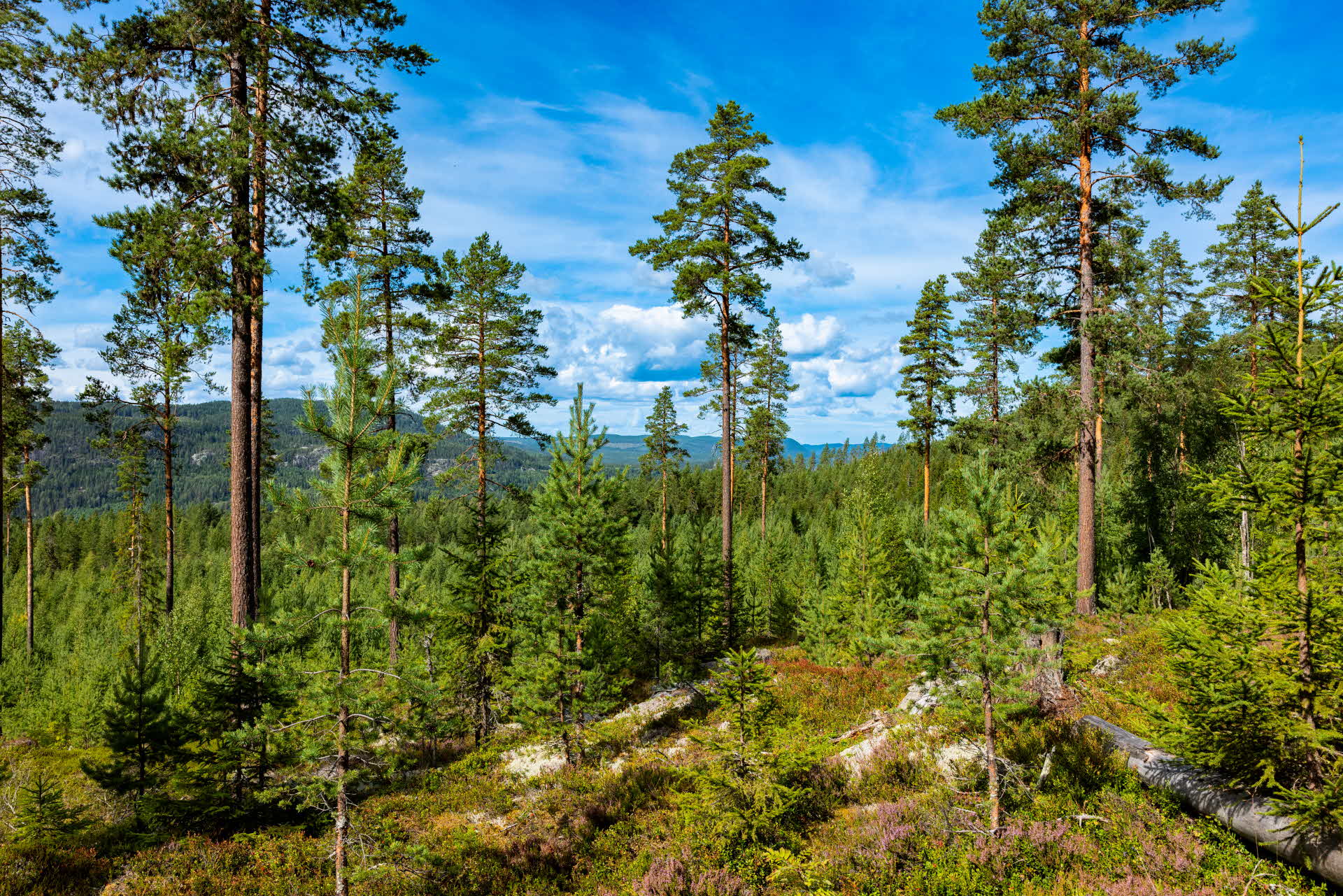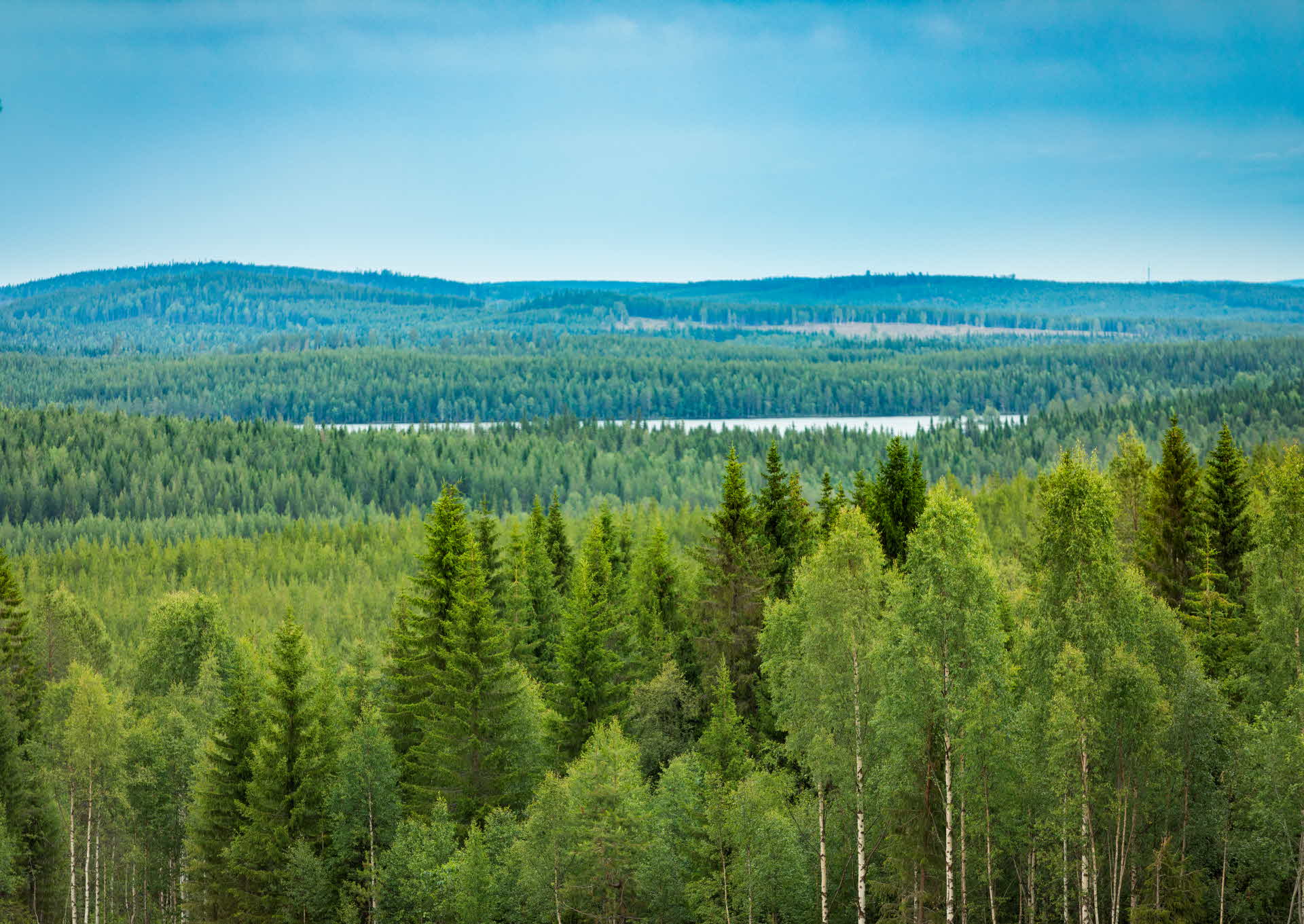
- SUSTAINABILITY
- OUR SUSTAINABILITY PLATFORM
- FOSSIL-FREE WORLD
Fossil-free world
The forest binds large amounts of CO₂ when it grows. But it also yields substantial climate benefits when it has been harvested, as forest products replace fossil alternatives so the use of oil and coal can be phased out. The products also store carbon throughout their lifecycle. In 2024, SCA contributed a total climate benefit of 12.3 million tonnes of CO₂e. This corresponds to more than one quarter of Sweden’s fossil emissions.
Supporting sustainability targets and outcome 2024:
Target: Climate benefit of at least 10 million tonnes CO2.
Outcome: 12.3 million tonnes CO2.
Target: 50% reduction of fossil emissions in the value chain, Scope 1, 2 and 3,
compared with 2019.
Outcome: 0.9 million tonnes CO2eq. Reduction by 17% compared with the base
year of 2019.
Target: Implement 11 TWh of installed wind power capacity on SCA land by 2025.
Outcome: 9.7 TWh.
For outcome from climate model 2019 and earlier climate targets see the Annual report.
The United Nations Framework Convention on Climate Change concludes that there are two directions to save the climate: to increase storage of carbon and to reduce fossil-fuel emissions. We contribute to both.
When trees in our forests grow they capture and bind CO₂. The more they grow, the more carbon dioxide they bind. SCA actively manages the forests and therefore has vigorous forests with a high rate of growth. We harvest less than the forest grows, which means the storage of carbon dioxide is constantly increasing.
Equally important is the benefit created through our contribution to reducing fossil-fuel emissions. When forest is used as raw material when, for example, building houses, manufacturing packaging and producing biofuels, these replace products with a negative climate impact. Our products can be used instead of cement, steel, plastic and oil. When renewable alternatives replace fossil products, substantial fossil carbon emissions into the atmosphere can be avoided.
Products from the forest also store carbon. During their entire lifecycle, they store the carbon absorbed from the atmosphere by the forest as CO₂. Long-lived products, such as solid-wood products in buildings, can store carbon for more than a century. 90% of our solid-wood products become long-living products.
Toward a fossil-free value chain
One of our objectives is to make the entire value chain fossil-free. One interim target is to halve fossil emissions between 2019 and 2030. Through systematic work with efficiency enhancements and a transition to biofuels, emissions from our industries have decreased, and industrial processes are today almost entirely fossil-free.

The single largest source of fossil emissions is transportation. Work to reduce emissions includes choosing transportation with low environmental impact, optimizing transportation and using various technologies to reduce fuel consumption.
We use rail and road for some of our transportation, but most is by sea. Sea is the mode of transport with the lowest climate impact, as it generates the lowest emissions per tonne of freight transported. We place great emphasis on maximizing the load factor for rail, sea and road transportation to ensure that it is as resource-efficient as possible.
In 2022, we began testing an electric truck to transport raw materials to the paper mill in Obbola. We are now taking part in a project whereby 50% of new trucks purchased by the forest industry will be electric by 2030.
Managed forest binds more CO2
Studies have found that it is because of active management that the forest binds so much carbon. This is in part due to the high growth rate of managed forest, but also because there is less damage and fewer forest fires.
Standing volume is constantly increasing in Sweden and in the rest of Europe, which means carbon sequestration is increasing while we also have access to large quantities of sustainable raw materials.
Forest – both carbon sink and climate-smart raw material
The greatest benefit from the forest is when it acts as both a carbon sink and is used sustainably, so it can help to avoid fossil greenhouse gas emissions.
If we stop managing the forest and do not have access to forest products, what should we then use to build houses, manufacture packaging, fuel and everything else needed in a welfare society?
The need for these products will not decrease, but they will instead be produced using other materials – materials with a negative impact on the climate. We will mine and extract more fossil carbon from the ground to replace the forest industry’s products with, for example, plastic and concrete. There would be an increase in carbon sequestration in the forest, but in parallel emissions will increase of fossil carbon from other operations.
The most climate-smart alternative is therefore to use the climate-smart raw material for sustainable products, while the forest is carefully managed to steadily increase the net sequestration of carbon and other important ecosystem services from the forest are maintained or strengthened.
Renewable products and renewable energy
SCA's products are renewable and sustainable. In this way, we enable others to transition to fossil-free alternatives. In addition to contributing with climate-smart products such as sawn timber and pulp, we also offer renewable energy from residual products from forestry and the sawmill industry. Products such as forest fuels, pellets, and tall oil.
Several of our industries deliver surplus heat, which becomes district heating for surrounding municipalities. We lease land for wind power and operate wind farms independently. The production of wind power on our land corresponds to approximately 20 percent of Sweden's total wind power production.
Additionally, we have extensive production of green electricity, which accounts for about one percent of Sweden's electricity consumption.
SCA also sells a number of green products extracted as by-products when manufacturing pulp. This mainly concerns tall oil, which is a renewable raw material for biodiesel, and turpentine, which is used when manufacturing cosmetics and as an additive in paint. These are also sustainable products that replace fossil products, which means oil and coal can stay underground.
Our climate benefit
SCA uses Skogforsk’s climate model for the forest industry to report its total climate impact. The model consists of four different components: The forest’s uptake, storage in products, avoidable emissions and fossil emissions in our value chain.



